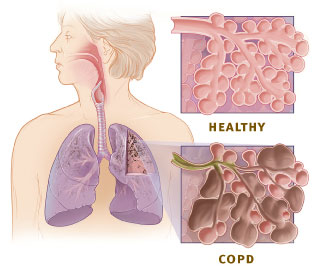HIV/AIDS prevention strategy pays up in India, funded by Bill Gates Foundation; a study concludes. Approximately about 100,000 people in India may have escaped from HIV infection over five years from 2003 to 2008; the period assessed.
The result is apparently due to aggressive prevention programs, that targeted the high-risk groups; the study suggests. The program was named as Avahan.
 Image via Wikipedia
Image via Wikipedia
The strategies included no sharing of needles, safe-sex counseling, condom distribution and other interventions to reach vulnerable groups; including truck drivers, injectable drug users, men who have sex with other men; and sex workers along with their clients and partners.
The assessment published online on October 11 in The Lancet Infectious Diseases; reports that Avahan was responsible for fewer HIV cases in the general population in the states like Andhra Pradesh, Karnataka and Maharashtra. However, that was not the case in southern state Tamil Nadu and the small northeastern states of Manipur and Nagaland. In Karnataka, the program was linked to a 13 percent drop in overall HIV rates, whereas Maharashtra saw the smallest decline, just over 2 percent.
The 6 states had a total population of 300 million and were estimated to have the highest HIV prevalence in 2003. In all six states, an estimated 100,178 HIV infections were supposed to have been averted due to the program, which is the best possible outcome with the available data, the study says.
The Bill & Melinda Gates Foundation launched Avahan; in Sankrit, "Call for", starting from 2003 with a grant of $258 million and provided an additional $80 million in 2009. The initiative operated alongside the Indian Government's own HIV prevention efforts.
The beneficial effect of Avahan is encouraging, but the heterogeneity of its effect across the states indicates the need for better understanding of aspects of Avahan which translated the success for wider adoption on a larger scale in future.
Study: Gates project spared 100K Indians from HIV
The result is apparently due to aggressive prevention programs, that targeted the high-risk groups; the study suggests. The program was named as Avahan.
The strategies included no sharing of needles, safe-sex counseling, condom distribution and other interventions to reach vulnerable groups; including truck drivers, injectable drug users, men who have sex with other men; and sex workers along with their clients and partners.
The assessment published online on October 11 in The Lancet Infectious Diseases; reports that Avahan was responsible for fewer HIV cases in the general population in the states like Andhra Pradesh, Karnataka and Maharashtra. However, that was not the case in southern state Tamil Nadu and the small northeastern states of Manipur and Nagaland. In Karnataka, the program was linked to a 13 percent drop in overall HIV rates, whereas Maharashtra saw the smallest decline, just over 2 percent.
The 6 states had a total population of 300 million and were estimated to have the highest HIV prevalence in 2003. In all six states, an estimated 100,178 HIV infections were supposed to have been averted due to the program, which is the best possible outcome with the available data, the study says.
The Bill & Melinda Gates Foundation launched Avahan; in Sankrit, "Call for", starting from 2003 with a grant of $258 million and provided an additional $80 million in 2009. The initiative operated alongside the Indian Government's own HIV prevention efforts.
The beneficial effect of Avahan is encouraging, but the heterogeneity of its effect across the states indicates the need for better understanding of aspects of Avahan which translated the success for wider adoption on a larger scale in future.
Study: Gates project spared 100K Indians from HIV
...
Click here to Subscribe news feed from "Clinicianonnet; so that you do not miss out anything that can be valuable to you !!
...






